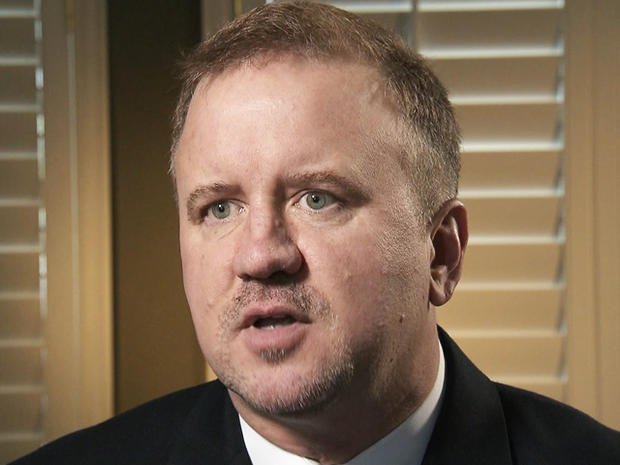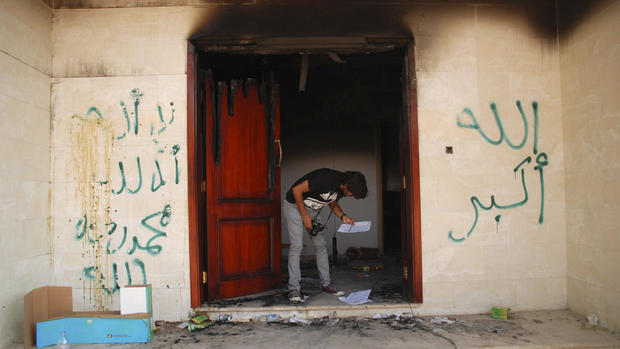One year after Benghazi attack, embassy security improvements lagging
Updated 8:49 PM ET
(CBS News) WASHINGTON -- On September 11, 2012, militants linked to al Qaeda stormed the U.S. mission in Benghazi and another building about a mile away. The attack lasted for hours, and the U.S. ambassador to Libya, Christopher Stevens, was killed, as were three other Americans. There were immediate calls to strengthen security at U.S. diplomatic outposts.
Former Diplomatic security agent Todd Keil just finished an internal investigation for the State Department that discovered extensive security flaws at U.S. diplomatic posts.
For instance, he pointed to the high-threat American embassy in Beirut, where the ambassador's office was not blast resistant and not protected by a sufficiently high enough wall.
It was the 1983 bombing of the previous American embassy, which killed 63 people, that prompted the creation of the Diplomatic Security Bureau.
"I think all of the members of the panel that travel to Beirut were a bit surprised when we recognized that we're on an embassy compound which actually created the new security standards because of what happened in 1983 and 1984," said Keil. "Thirty years later, we were on an embassy compound that still did not meet those security standards."
The State Department still has not fully implemented recommendations made after an earlier investigation into the Benghazi attacks.
Those included 1,000 Marines to be sent to 27 high-threat posts (only 100 have deployed); new training for embassy personnel to prevent injury by fire, which is still 10 months away; and hiring an additional 150 of the State Department's own security staff, but many won't start for another year.
Benghazi office of Libya Foreign Ministry hit by bomb on anniversary of attack on U.S. Consulate
One year later, Benghazi's lingering issues
Complete Coverage: U.S. Consulate attack in Benghazi
Benghazi timeline: How the attack unfolded
CBS News asked the State Department about the delays, and it said it has requested $2.2 billion to to fully fund the reforms.
A bill in Congress to authorize that money has yet to come up for a vote.
"I would have liked to have seen the Congress move more expeditiously on this," said Sen. Robert Menendez, D-N.J., the Chairman of the Senate Foreign Relations Committee. "But at a time of fiscal cliffs, at a time of fiscal challenges, I have to continue to convince members that this is the right thing to do, it's right by our diplomats, it's right by our security interests."
The State Department has made improvements, including training for diplomats headed to dangerous posts, but a common way to respond these days is simply to evacuate -- like the department did last week in Beirut when there are concerns about our embassy there.
UPDATE : A State Department official later told CBS News:
"The Best Practices Panel was convened by the State Department in response to the Accountability Review Board's recommendation. Our initial assessment is that many areas of concern are similar to those previously identified by the Accountability Review Board, but the Panel also provided specific suggestions for the Department based on best practices used by industry and other governmental agencies. We appreciate the work of this expert panel and will study the report."
"Since December, the State Department has been implementing all of the Accountability Review Board's recommendations, by bringing on more security personnel, putting more Marines at our high-threat diplomatic posts, and upgrading our facilities."


